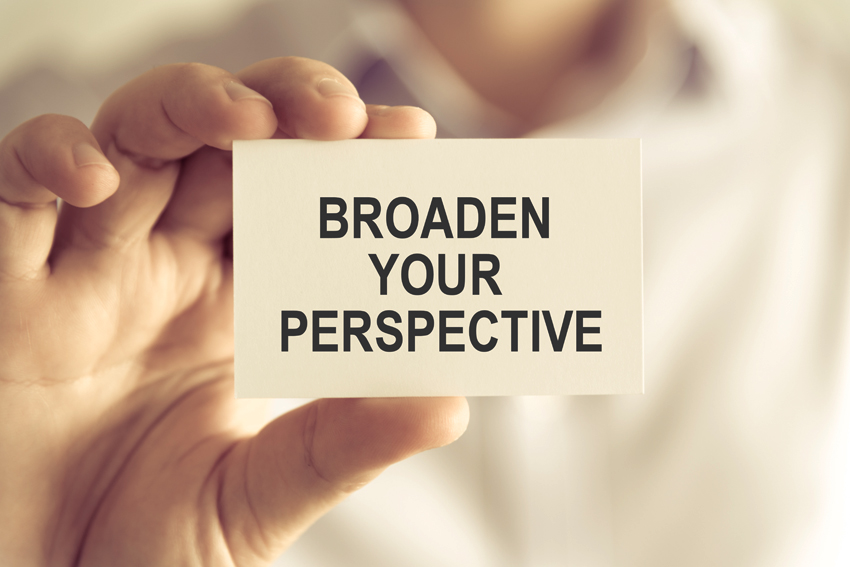Complete Communicator: Avoid having your assumptions become your convictions
Complete Communicator: Avoid having your assumptions become your convictions
By Jay Sullivan
As lawyers, we are taught to be discerning, to be thoughtful, and to apply critical thinking as we process complex and sometimes conflicting information. As humans, we are prone to react reflexively, to give in to our biases, and to jump to conclusions.
Our snap judgments harden quickly into certitudes. If our conclusions are wrong, our ego keeps us from correcting course. In other words, when we take the first step down the wrong path on any given opinion, we’re more likely to keep going down that path. But if we can catch ourselves in the moment and challenge our assumptions, we can correct course. As a result, we can improve our ability to analyze the situation and reach sounder conclusions.
We listen to colleagues, clients, and opposing counsel all day. Some share ideas that present helpful food for thought. But occasionally we think that food is baloney. Here are three easy questions we can ask ourselves when we have just made an assumption or judged someone else’s behavior. If you make a habit of swapping your instinctive questions for these alternatives, you’ll find yourself more open to new ideas and different perspectives.
Swap-out No. 1:
When your immediate reaction is, “What the heck is he thinking?” promptly follow with, “What additional information does he have that I don’t have?”
You’re on a call with local counsel on complex litigation. Someone has just suggested a course of action that makes little sense to you. Our frustration with the decisions of others often comes from a lack of information. Often in meetings someone will share their conclusion, but given time constraints, confidentiality issues, or other factors, they haven’t shared all of the information that led to that decision. We decide immediately that we don’t agree, but we don’t stop there; we also judge the other person’s overall competence. We’re confused by the decision. We’re also likely thinking solely about how the decision impacts us, which is a completely human reaction, but not always helpful for giving us a broader perspective.
In addition, depending on who shared the information and our predisposition to that person’s credibility, we’re likely to make a snap decision about whether or not we like the idea. Once we form that opinion, it takes a lot of humility and reflection to change our minds. But instead of letting that snap judgment coalesce in our brain, immediately seek perspective by staying open to someone else’s idea and the fact that there may be information you don’t yet possess. Seeking that information by asking thoughtful questions, without a judgmental tone, can help us not only gather the information we need, but judge that information more impartially. Then, if we still think the other person’s idea is misguided, we’re at least making that judgment based on information, reason, and analysis.
Swap-out No. 2:
The next time someone shares an idea that causes you to think, “How could that possibly make any sense?” follow with, “From what perspective could that make sense?”
Our ideas and perspectives arise not just from information, but from our experience. None of us fully know someone else’s life story, and few of us have taken the time to truly understand someone else’s perspective. Nevertheless, we can stay open to learning.
Differences of opinion are the essence of litigation. The more we can reflect on the perspective of the other side, the more likely we will be to see a path forward. In a transactional practice, negotiations are endless. If we ask better questions, we understand the motive around someone else’s position. This helps us resolve difficult points more quickly since we learn where to target our energy.
We each view the world not just through our own lenses, but through myriad filters based on our life experiences, opportunities, and challenges. While another person’s idea makes no sense to you because of your own path, it clearly makes sense to them. We don’t always know what opportunities or job path has brought him or her to this point in their career, but clearly, it’s led them to being in this conversation and reaching a conclusion that you disagree with. Respect for their conclusion will allow you to have a more open, honest, and productive conversation, which will help move the discussion forward.
Respect for someone else’s opinion does not mean you ultimately have to agree with them. While all perspectives are legitimate, not all conclusions are equal in value. Some ideas are better than others and some ideas are just plain bad. Honoring and trying to understand those different perspectives, however, leads to better, more respectful relationships, which in turn, helps us all learn and become more persuasive and effective.
Swap-out No. 3:
When someone offers an opinion that seems overly cautious or blatantly reckless, we tend to think, “Why so timid?” or “Why the rush?” Follow that question with, “What’s the roadblock?” or “What’s prompting the urgency?”
Our frame of reference is formed not just from the information we have or our job history or education. It’s formed from fate, and from how the forces of the world cooperate to support us or conspire against us. As lawyers, we are trained to be cautious, weighing the risks and protecting against downsides. If we’re working on behalf of a corporate client who has achieved results by pushing the envelope, we’re often pulling them back from what we consider rash or risky behavior. To understand that client’s perspective, we need to challenge our own inclinations. One person’s “rush” is another person’s attempt to take advantage of an opportunity.
We can’t walk in other peoples’ shoes or fully know their paths. We can, however, remind ourselves that there are other types of shoes and an endless number of paths. By simply pausing and trying to drill down deeper, we keep our judgmental brain from building up speed and becoming an unstoppable train that can derail trust and undermine effective cooperation.
Swap-out shortcut:
The key is to make the process habitual. Our assumptions “paint” a picture of someone else’s ideas. The trick is to change that picture before the paint dries. If the alternative questions I am suggesting are too complex, try this simplified process instead. Every time you hear an idea you think is crazy or misguided, when you hear yourself say, “No,” which feels final, follow it with “Whoa,” which suggests moderation and care. Then, ask yourself what questions you need to ask the other person to close the gap on your perspectives.

Jay Sullivan is a former practicing attorney and the former managing partner at Exec/Comm, LLC, a communications consulting firm. He is the author of “The New Nimble: Leading in the Age of Change,” “Simply Said: Communicating Better at Work & Beyond,” and “Raising Gentle Men: Lives at the Orphanage Edge.” He can be reached at [email protected].
Share this story, choose a platform
Brought to you by BridgeTower Media
Free Weekly Newsletter
Recommended content
Reputational Management: Why values-driven communication protects law firm reputation
Reputational Management: Why values-driven communication protects law firm reputation By Gina F. Rubel and Elizabeth Ogilvie In volatile times, values are not abstract [...]
How to challenge effectively (even when you have less power)
Learning to tactfully challenge a colleague’s decisions or reasoning is a skill. Here are some ways to start the dialogue. [...]
6 succession planning mistakes lawyers make
When small-firm owners fail to smoothly retire from their practices, it’s usually due to failings many years in the making. [...]
The practical realities of running a bilingual law firm
Speaking the same language as clients does not necessarily mean they are understanding you enough to participate fully in their [...]






